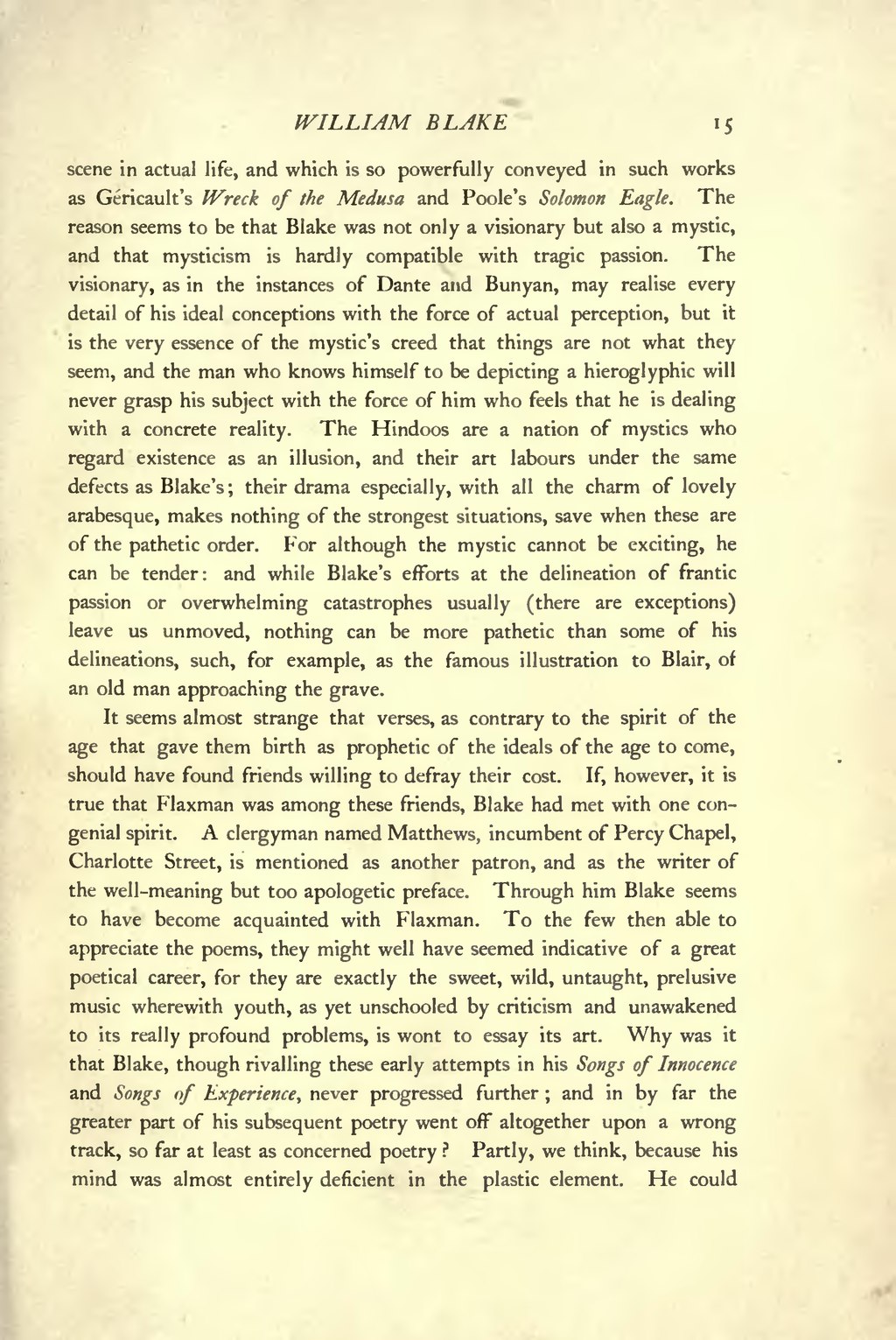scene in actual life, and which is so powerfully conveyed in such works as Gericault's Wreck of the Medusa and Poole's Solomon Eagle. The reason seems to be that Blake was not only a visionary but also a mystic, and that mysticism is hardly compatible with tragic passion. The visionary, as in the instances of Dante and Bunyan, may realise every detail of his ideal conceptions with the force of actual perception, but it is the very essence of the mystic's creed that things are not what they seem, and the man who knows himself to be depicting a hieroglyphic will never grasp his subject with the force of him who feels that he is dealing with a concrete reality. The Hindoos are a nation of mystics who regard existence as an illusion, and their art labours under the same defects as Blake's; their drama especially, with all the charm of lovely arabesque, makes nothing of the strongest situations, save when these are of the pathetic order. For although the mystic cannot be exciting, he can be tender: and while Blake's efforts at the delineation of frantic passion or overwhelming catastrophes usually (there are exceptions) leave us unmoved, nothing can be more pathetic than some of his delineations, such, for example, as the famous illustration to Blair, of an old man approaching the grave.
It seems almost strange that verses, as contrary to the spirit of the age that gave them birth as prophetic of the ideals of the age to come, should have found friends willing to defray their cost. If, however, it is true that Flaxman was among these friends, Blake had met with one congenial spirit. A clergyman named Matthews, incumbent of Percy Chapel, Charlotte Street, is mentioned as another patron, and as the writer of the well-meaning but too apologetic preface. Through him Blake seems to have become acquainted with Flaxman. To the few then able to appreciate the poems, they might well have seemed indicative of a great poetical career, for they are exactly the sweet, wild, untaught, prelusive music wherewith youth, as yet unschooled by criticism and unawakened to its really profound problems, is wont to essay its art. Why was it that Blake, though rivalling these early attempts in his Songs of Innocence and Songs of Experience, never progressed further; and in by far the greater part of his subsequent poetry went off altogether upon a wrong track, so far at least as concerned poetry? Partly, we think, because his mind was almost entirely deficient in the plastic element. He could
